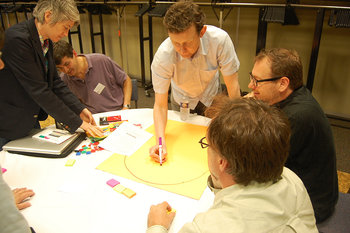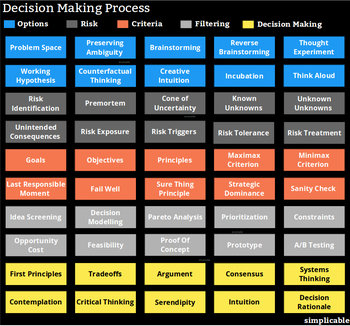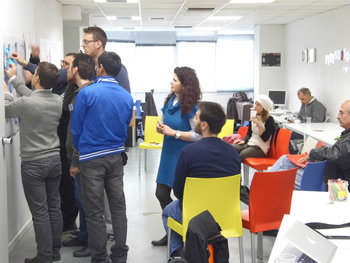
Mathematical Patterns
Patterns in math such as sequences, series and geometrical shapes.
Visual Patterns
Repeated elements in art, design and other visual environments and communications.
Business Patterns
Things that have worked for one business such as a business model that get transferred across industries.
Best Practices
Businesses avoid reinventing things by applying patterns known as best practices that are well-known solutions to common problems.
Design Patterns
Reusable solutions to common design problems. Often used in software design.
Architectural Patterns
Well-known structural designs that can be applied to solve common problems.
Strategies
Patterns for winning a competition in the long term.
Tactics
Patterns for winning a competition in a fast moving situation that requires immediate responses. For example, closing techniques used in sales.
Communication Patterns
Models for communicating such as a meeting, memo or social media post.
Behavioral Patterns
Patterns of human behavior such as a tendency to seek respect and understanding from others.
Social Patterns
Patterns of social behavior such as a tendency to establish norms of behavior within any culture or group.
First Principles
Foundational principles that are broadly applicable to a great number of problems.
| Overview: Pattern | ||
Function | ||
Value | Patterns are intended to avoid wasting resources solving problems that already have an effective and well accepted solution. | |
Similar Techniques | ||































